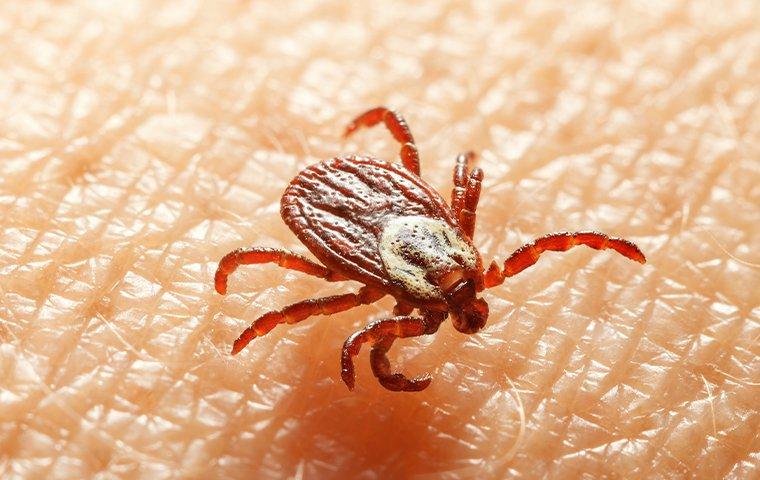There are fifteen species of ticks found in Tennessee. The ticks that are common to our Brentwood service area are the American dog tick, the brown dog tick, and the Lonestar tick. Each of these tick species presents unique threats to our pets and to our health. We're also learning that there is another dangerous tick that has entered our area: The Asian longhorn tick. Let's take a look at these ticks and break down what you need to know most.
Asian Longhorn Tick
This tick species was first spotted in New Jersey in 2017. It hasn't been here long. But it is quickly becoming a serious concern. Outside the United States, Asian longhorn ticks are known to spread ehrlichiosis, Lyme disease, Powassan virus, and Japanese spotted fever. They are best known for transmitting severe fever with thrombocytopenia syndrome, referred to as SFTS. SFTS is a deadly disease that has been found to be fatal in fifteen percent of patients. This tick is currently a serious livestock pest, but its ability to impact human health is being watched carefully.
Brown Dog Tick
This tick species presents a unique threat in that it is the only tick that can complete its entire life cycle indoors. Once it gets in, it can stay in. Fortunately, it prefers to bite domesticated canines, which can lower its overall level of threat. But you should keep in mind that the brown dog tick is a risk for the spread of Rocky Mountain spotted fever, which can be fatal.
American Dog Tick
This is another tick species that prefers to bite domesticated canines but it does not survive well indoors. If your furry family member brings American dog ticks into your home, those ticks can bite when you come in close contact with them. If you are bitten by an American dog tick, the risk of Rocky Mountain spotted fever is high. The American dog tick is considered the primary vector for this disease. You can also contract tularemia or develop tick paralysis. The American dog tick gets its name from the fact that it is only found in America. Lucky us.
Lone Star Tick
This tick species is the big boy on the block. It is known to spread several diseases, including ehrlichiosis, tularemia, Bourbon virus, Heartland virus, Alpha Gal Syndrome, and southern tick-associated rash illness (STARI). If this isn't bad enough, Lone Star ticks can be found in large numbers within vegetation, and they readily bite humans. Fortunately, bites are from seed ticks, which have not yet contracted diseases from animal reservoirs. Keep this in mind when you find your son or daughter covered with specks that you realize, to your horror, are tiny little ticks. It is wise, however, to seek medical attention to be sure illness has not been transmitted.
How To Mitigate The Threat Of Tickborne Illnesses
There are many things you can do to protect yourself and everyone else in your Brentwood home. We'll break these down into threat categories.
Personal Prevention
-
Make sure your pets have collars and other tick-prevention products prescribed by your vet.
-
Wear mosquito repellent on your legs and feet when going for walks in nature.
-
Avoid tall grass.
-
Do a tick check when you come back inside. Early removal is key to disease prevention.
-
Wear bright colors so you can see ticks crawling up.
Tick Reduction
-
Reduce moisture around your home.
-
Reduce wildlife traffic and harborage options.
-
Seal potential entry points mice or rats might use to get in.
Tick Control
Invest in Stinging & Biting Insect Yard Treatments from All-American Pest Control. This service includes granule applications and mist applications which are applied to key locations on your property and work to get control of ticks, fleas, chiggers, and fire ants. Learn more by reaching out to us today for a free home evaluation. We're standing by to assist you with this essential protection for the health of your family.
 1446 Reviews
1446 Reviews


